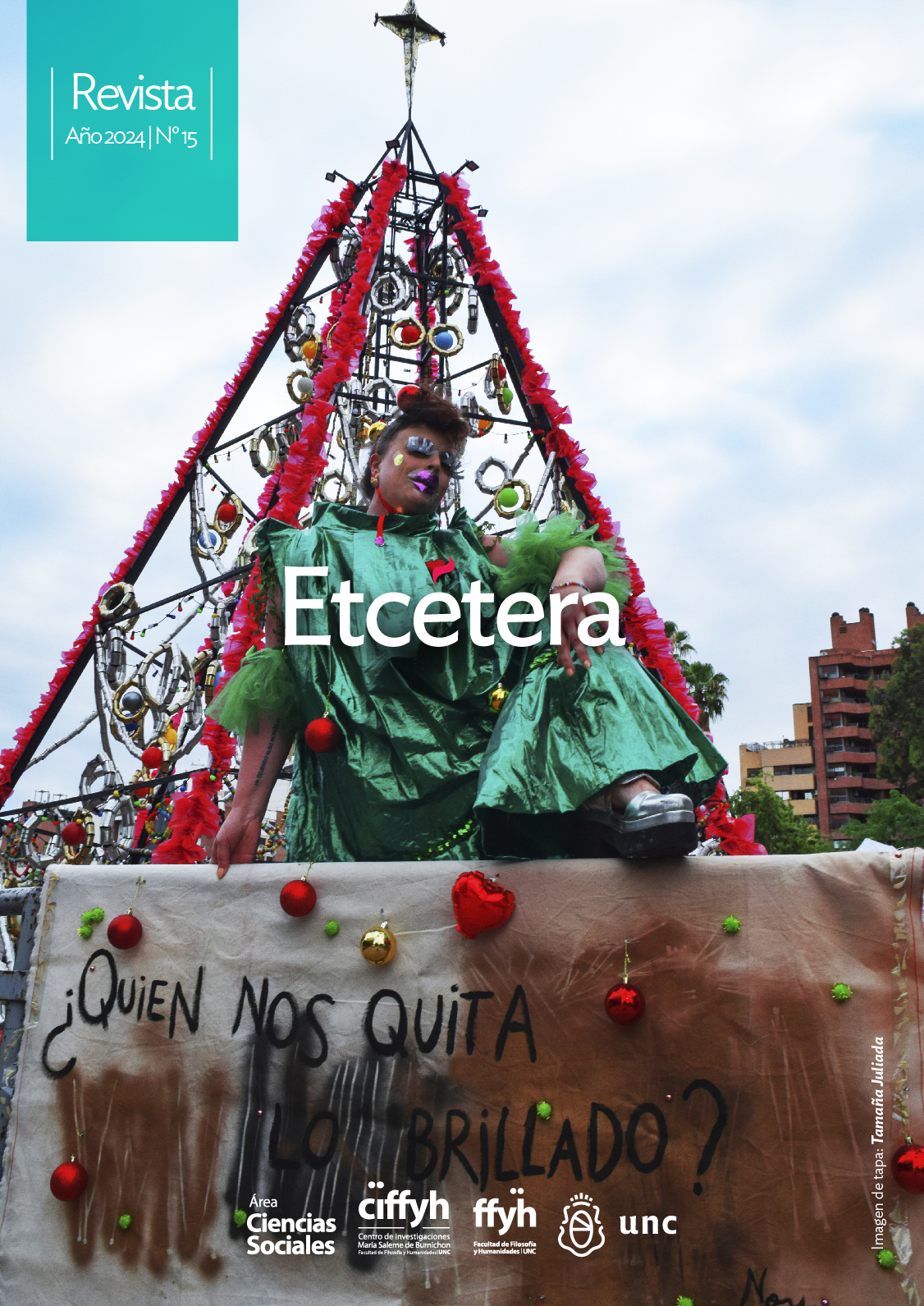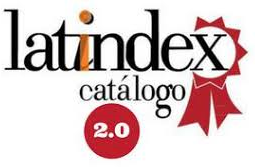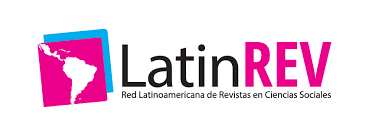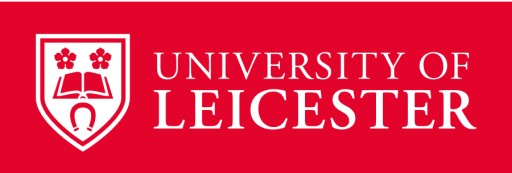Futuridad queer e inocencia infantil: más allá de la herida del desarrollo
Traducción de Dyer, H. (2016). Queer futurity and childhood innocence: beyond the injury of development. Global Studies of Childhood, 7(3), 290-302
Mots-clés :
infancia, sexualidad, LGBTQ, estado-naciónRésumé
Dado que a menudo se dice que la niñez es el futuro, la atención de la teoría queer sobre la futuridad queer (y sus intensos debates) resulta novedosa para los estudios de infancia. Basándome en intentos recientes de fusionar los campos de los estudios sobre la infancia y la teoría queer, me detengo en la contradicción que resulta de las suposiciones simultáneas sobre la a-sexualidad infantil y su proto-heterosexualidad para mostrar lo constructivo que resultaría enfatizar la cuestión sexual en las discusiones educativas. Con el objetivo de aportar a la renovación de las ideas sobre el desarrollo psicosexual infantil, ofrezco una lectura crítica de la campaña en las redes sociales de It Gets Better (particularmente, sus críticas y consecuentes revisiones). Para ello, comienzo con un análisis del ensayo de Eve Sedgwick de 1991 sobre infancias queer, Cómo criar a tus hijos gay, y luego, a partir de ahí, trazo el uso que ha hecho la teoría queer de la figura de la niñez y el impacto que tuvo y tiene la exaltación de su supuesta inocencia. En un esfuerzo por estudiar las formas en que aún funciona la violencia sobre la que se han construido las teorías del desarrollo infantil “saludable”, también considero cómo el colonialismo y la esclavitud transatlántica han dejado huellas en dichas teorías y hoy se extienden hacia todo aquello que entendemos por futuro.
Téléchargements
Références
Allen, L. (2011). Young people and sexuality education. Rethinking key debates. Basingstoke: Palgrave Macmillan.
Britzman, D. (1998). Lost subjects, contested objects. Toward a psychoanalytic inquiry of learning. Nueva York: State University of New York Press.
Britzman, D. (2003). After education. Anna Freud, Melanie Klein, and psychoanalytic histories of learning. Nueva York: State University of New York Press.
Bruhm, S. y Hurley, N. (2004). Curiouser: on the queerness of children. Minneapolis: University of Minnesota Press.
Burt, T.; Gelnaw, A. y Lesser, L. K. (2010). Do no harm. Creating welcoming and inclusive environments for Lesbian, Gay, Bisexual, and Transgender (LGBT) families in early childhood settings. Young Children, vol. 65, núm. 1, pp. 97-102. Washington: National Association for the Education of Young Children.
Butler, J. (1993). Critically queer. GLQ. A Journal of Lesbian and Gay Studies, vol. 1, núm. 1, pp. 17-32. Durham: Duke University Press. https://doi.org/10.1215/10642684-1-1-17
Davies, C. y Robinson, K. (2010). Hatching babies and stork deliveries. Risk and regulation in the construction of children’s sexual knowledge. Contemporary Issues in Early Childhood, vol. 11, núm. 3, pp. 246-262. SAGE Journals. https://doi.org/10.2304/ciec.2010.11.3.24
Edelman, L. (2004). No future. Queer theory and the death drive. Durham: Duke University Press.
Georgis, D. (2013). The better story. Queer affects from the Middle East. Buffalo: State University of New York Press.
Goltz, D. B. (2013). It gets better. Queer futures, critical frustrations and radical potentials. Critical Studies in Media Communication, vol. 30, núm. 2, pp. 135-151. Washington: National Communication Association. https://doi.org/10.1080/15295036.2012.701012
Hagglund, S. (1993). The gender dimension in children’s learning of prosocial competence in early educational settings. European Early Childhood Education Research Journal, vol. 1, núm. 2, pp. 67-80. Reino Unido: EECERA. https://doi.org/10.1080/13502939385207461
Halberstam, J. (2011). The queer art of failure. Durham: Duke University Press.
Janmohamed, Z. (2010). Queering early childhood studies. Challenging the discourse of developmentally appropriate practice. Alberta Journal of Educational Research, vol. 56, núm. 3, pp. 304-318. Canadá: University of Alberta.
Kelleher, P. (2004). How to do things with perversion. Psychoanalysis and the child in danger. En: S. Bruhm y N. Hurley (eds.), Curiouser: on the queerness of children (pp. 151-171). Minneapolis: University of Minnesota Press.
Kincaid, J. R. (1998). Erotic innocence. The culture of child molesting. Durham: Duke University Press.
King, J. R. (1997). Keeping it quiet. Gay teachers in the primary grades. En: J. Tobin (ed.), Making a place for pleasure in early childhood education (pp. 235-250). New Haven: Yale University Press.
Matthews, S. (2009). Hitler’s car as curriculum text. Reading adolescents reading history. Journal of the Canadian Association for Curriculum Studies, vol. 7. núm. 2, pp. 49-85. Canadá: CACS. https://doi.org/10.25071/1916-4467.22342
Muñoz, J. E. (2009). Cruising utopia. The then and there of queer futurity. Nueva York: New York University Press.
Nyong’o, T. (2010, 30 de septiembre). School daze. Bully Bloggers. Estados Unidos. https://bullybloggers.wordpress.com/2010/09/30/school-daze/
Nyong’o, T. (2011). Have you seen his childhood? Song, screen, and the queer culture of the child in Michael Jackson’s music. Journal of Popular Music Studies, vol. 23, núm. 1, pp. 40-57. Estados Unidos: Wiley. https://doi.org/10.1111/j.1533-1598.2010.01263.x
Owen, G. (2010). Queer theory wrestles the “Real” child. Impossibility, identity, and language in Jacqueline Rose’s The Case of Peter Pan. Children’s Literature Association Quarterly, vol. 35, núm. 3, pp. 255-269. Baltimore: Johns Hopkins University Press. https://doi.org/10.1353/chq.2010.0007
Puar, J. (16 de noviembre de 2010). In the wake of it gets better. The Guardian. Londres, Reino Unido. www.guardian.co.uk/commentisfree/cifamerica/2010/nov/16/wake-it-gets-better-campaign?showallcomments=true#comment-fold
Robinson, K. H. (2005). “Queerying” gender. Heteronormativity in early childhood education. Australasian Journal of Early Childhood, vol. 30, núm. 2, pp. 19-28. Australia: ECA. https://doi.org/10.1177/183693910503000206
Robinson, K. H. (2008). In the name of “childhood innocence”. A discursive exploration of the moral panic associated with childhood and sexuality. Cultural Studies Review, vol. 14, núm. 2, pp. 113-129. Australia: University of Melbourne y University of Technology Sydney. https://doi.org/10.5130/csr.v14i2.2075
Robinson, K. H. (2012). “Difficult citizenship”. The precarious relationships between childhood, sexuality and access to knowledge. Sexualities, vol. 15, núm. 3-4, pp. 257-276. SAGE Journals. https://doi.org/10.1177/1363460712436469
Robinson, K. H. (2013). Innocence, knowledge, and the construction of childhood. The contradictory nature of sexuality and censorship in children’s contemporary lives. Londres: Routledge.
Ruffolo, D. V. (2009). Queering child/hood policies. Canadian examples and perspectives. Contemporary Issues in Early Childhood, vol. 10, núm. 3, pp. 291-208. SAGE Journals. https://doi.org/10.2304/ciec.2009.10.3.291
Sedgwick, E. K. (1991). How to bring your kids up gay. Social Text, vol. 29, núm. 1, pp. 18-27. Durham: Duke University Press. https://doi.org/10.2307/466296
Sedgwick, E. K. (2004). How to bring your kids up gay. En: S. Bruhm y N. Hurley (eds.), Curiouser: on the queerness of children (pp. 139-150). Minneapolis: University of Minnesota Press.
Silin, J. G. (1995). Sex, death, and the education of children. Our passion for ignorance in the age of AIDS. Nueva York: Teachers College Press.
Smith, A. (2010). Queer theory and native studies. The heteronormativity of settler colonialism. GLQ. A Journal of Lesbian and Gay Studies, vol. 16, núm. 1-2, pp. 41-68. Durham: Duke University Press. https://doi.org/10.1215/10642684-2009-012
Stockton, K. B. (2009). The queer child, or growing sideways in the Twentieth Century. Durham: Duke University Press.
Tobin, J. (1997). The missing discourse of pleasure and desire. En: J. Tobin (ed.), Making a place for pleasure in early childhood education (pp. 1-37). New Haven: Yale.
Warner, M. (1999). The trouble with normal. Sex, politics and the ethics of queer life. Cambridge: Harvard University Press.
Wolfe, R. B. (2006). Choosing to include gay issues in early childhood teacher preparations coursework. One professor’s journey. Journal of Early Childhood Teacher Education, vol. 27, núm. 2, pp. 195-204. Taylor & Francis. https://doi.org/10.1080/10901020600675174
Téléchargements
Publiée
Numéro
Rubrique
Licence
(c) Copyright Etcétera. Revista del Área de Ciencias Sociales del CIFFyH 2024

Ce travail est disponible sous licence Creative Commons Attribution - Pas d’Utilisation Commerciale - Partage dans les Mêmes Conditions 4.0 International.
Aquellos autores/as que tengan publicaciones con esta revista, aceptan los términos siguientes:
- Los autores/as conservarán sus derechos de autor y garantizarán a la revista el derecho de primera publicación de su obra, el cuál estará simultáneamente sujeto a la Licencia de reconocimiento de Creative Commons que permite compartir, copiar, distribuir, ejecutar y comunicar públicamente la obra, siempre que: 1) se cite la autoría y la fuente original de su publicación (revista, editorial y URL de la obra); 2) no se use para fines comerciales; 3) En caso que se transforme o genere una obra derivada a partir de esta obra, deberá compartise bajo las mismas condiciones establecidas por esta licencia.
- Los autores/as podrán adoptar otros acuerdos de licencia no exclusiva de distribución de la versión de la obra publicada (p. ej.: depositarla en un archivo telemático institucional o publicarla en un volumen monográfico) siempre que se indique la publicación inicial en esta revista.
- Se permite y recomienda a los autores/as difundir su obra a través de Internet (p. ej.: en archivos telemáticos institucionales o en su página web) luego de la publicacion del articulo, lo cual puede producir intercambios interesantes y aumentar las citas de la obra publicada. (Véase El efecto del acceso abierto).
- El titular del copyright es Etcétera. Revista del Área de Ciencias Sociales del CIFFyH.



















